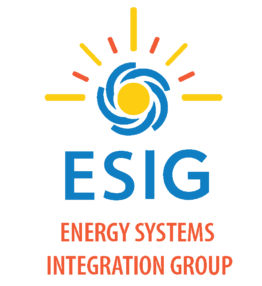
- This event has passed.
Webinar: Analysis of IBR-driven Oscillations in the Australian Grid
February 18, 2025 @ 4:00 pm - 5:00 pm EST
Featured Speakers: Nilesh Modi, Manager of Future System Studies team, Australia Energy Market Operator (AEMO); Shahil Shah, Principal Engineer at the Power Systems Engineering Center, National Renewable Energy Laboratory (NREL)
Shah, Principal Engineer at the Power Systems Engineering Center, National Renewable Energy Laboratory (NREL)
Webinar Abstract: The widespread integration of inverter-based resources (IBRs) has led to increasing instances of oscillations in power systems, driven by factors such as control interactions among IBRs and low system strength. In particular, sub-synchronous oscillations have been observed in regions of the Australian grid with high concentrations of IBRs. When such oscillations spread across a large portion of the network, it becomes crucial to identify their root causes to enable both operational mitigation and the exploration of long-term solutions.
This webinar will review recent IBR-driven oscillation events in the Australian grid and the proactive steps taken by the Australian Energy Market Operator (AEMO) to investigate these occurrences. A central focus will be the analysis of 17-20 Hz oscillation events, learnings from real-time observations, and analysis of these oscillations using electromagnetic transient (EMT) simulation and impedance scan studies.
Key takeaways will include:
- EMT and Impedance-Based Analysis: Insights into the application of impedance scans of IBRs and the transmission network, leveraging electromagnetic transient (EMT) simulation models to identify system resonance modes.
- Damping Contribution Assessment: Evaluation of the positive or negative damping contributions from individual IBRs to these modes.
- Enhancing System Strength: Demonstrating the role of grid-forming resources in improving system strength and reducing the risk of oscillations, quantified through frequency scan testing.
This webinar will provide actionable insights into using advanced approaches such as impedance-based assessment to address challenges posed by the widespread adoption of IBRs, offering both immediate and strategic solutions to enhance grid stability.
About the Speakers:
Nilesh Modi is the Manager of Future System Studies team at Australia Energy Market Operator (AEMO), Australia. Nilesh has seventeen years of experience spanning across academia, research and industry. His current area of interest is power system operation with high share of inverter-based resources. Since 2012, Nilesh has been working at AEMO where he has been involved in various key projects/documents published by AEMO, namely review of the South Australian (SA) system black event, system strength requirements, inertia requirement methodology and large scale EMT modelling of the grid, and assessment of converter-driven oscillations in IBR rich area.
Nilesh received his PhD from the University of Queensland, where he was awarded the Dean’s Excellence Award for RHD Excellence. He is a recipient of Energy Systems Integration Group (ESIG) Excellence Award. He is also an Adjunct Senior Research Fellow at the University of Queensland, Australia, an active member of CIGRE, Senior member of the IEEE and Fellow of Engineers Australia. Nilesh is an IEEE PES Distinguished Lecturer.
Shahil Shah is a Principal Engineer at the Power Systems Engineering Center of the National Renewable Energy Laboratory (NREL) in Golden, CO. His research focuses on the stability of power systems with high levels of inverter-based resources (IBRs), with a specific emphasis on impedance-based frequency scan methods for stability analysis. Shahil led the development of the Grid Impedance Scan Tool (GIST) at NREL, an advanced platform for performing impedance-based stability analysis using both simulation models and actual hardware, including inverters and wind turbines. GIST was a finalist for the 2023 R&D 100 Awards and has been applied globally in several NREL-led partnerships.
In 2022, Dr. Shah received the ESIG Excellence Award for his leadership in the design and analysis of grid-forming inverter systems. He holds a Ph.D. in Electrical Engineering from Rensselaer Polytechnic Institute (RPI), Troy, NY, awarded in 2018.
Moderator: Julia Matevosyan, Associate Director, Chief Engineer, ESIG
Registration Cost: FREE
Q&A Session:We will be using the Slido platform for Q&A. Please submit your questions and follow-along during the event at this link.

